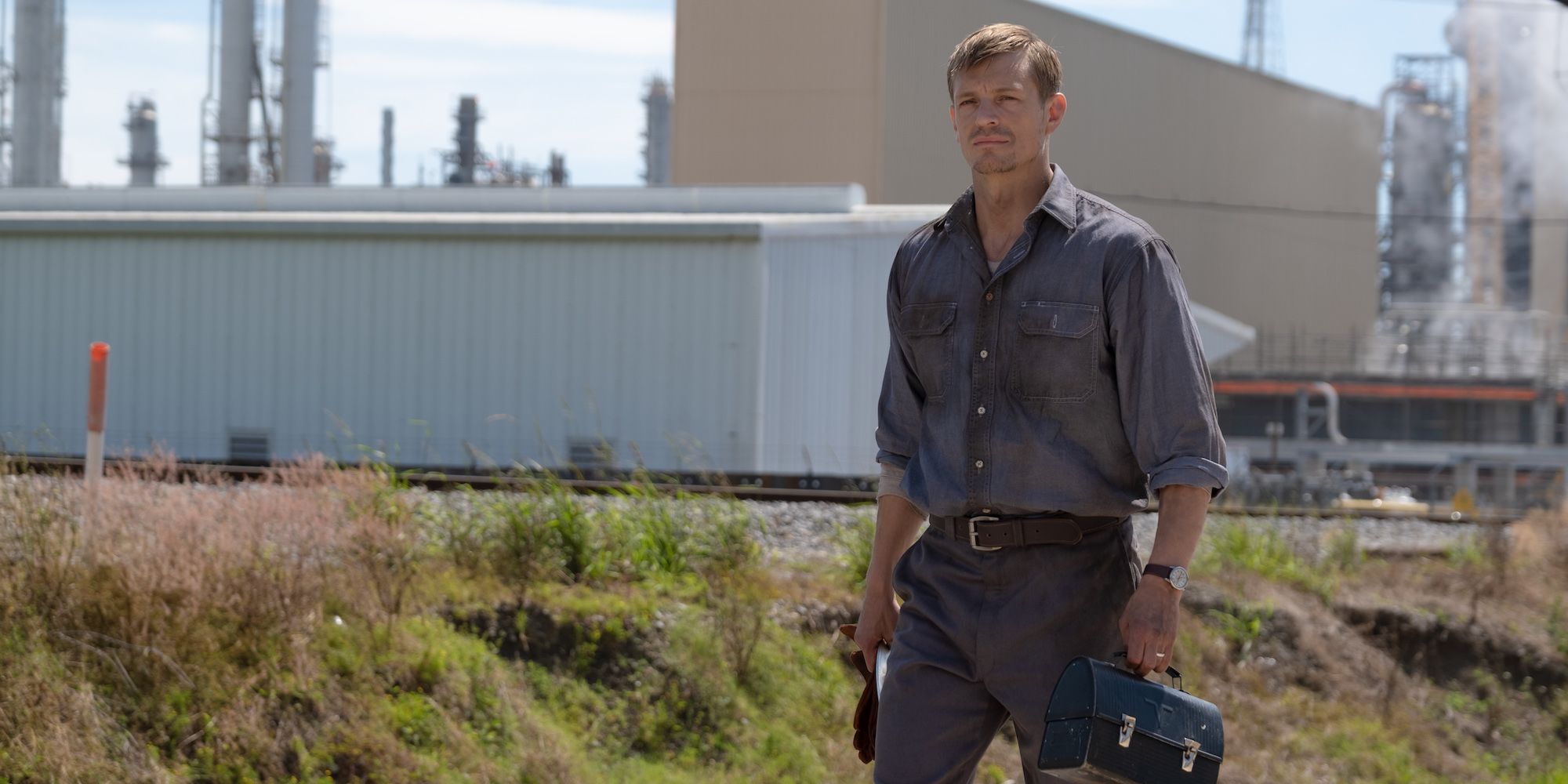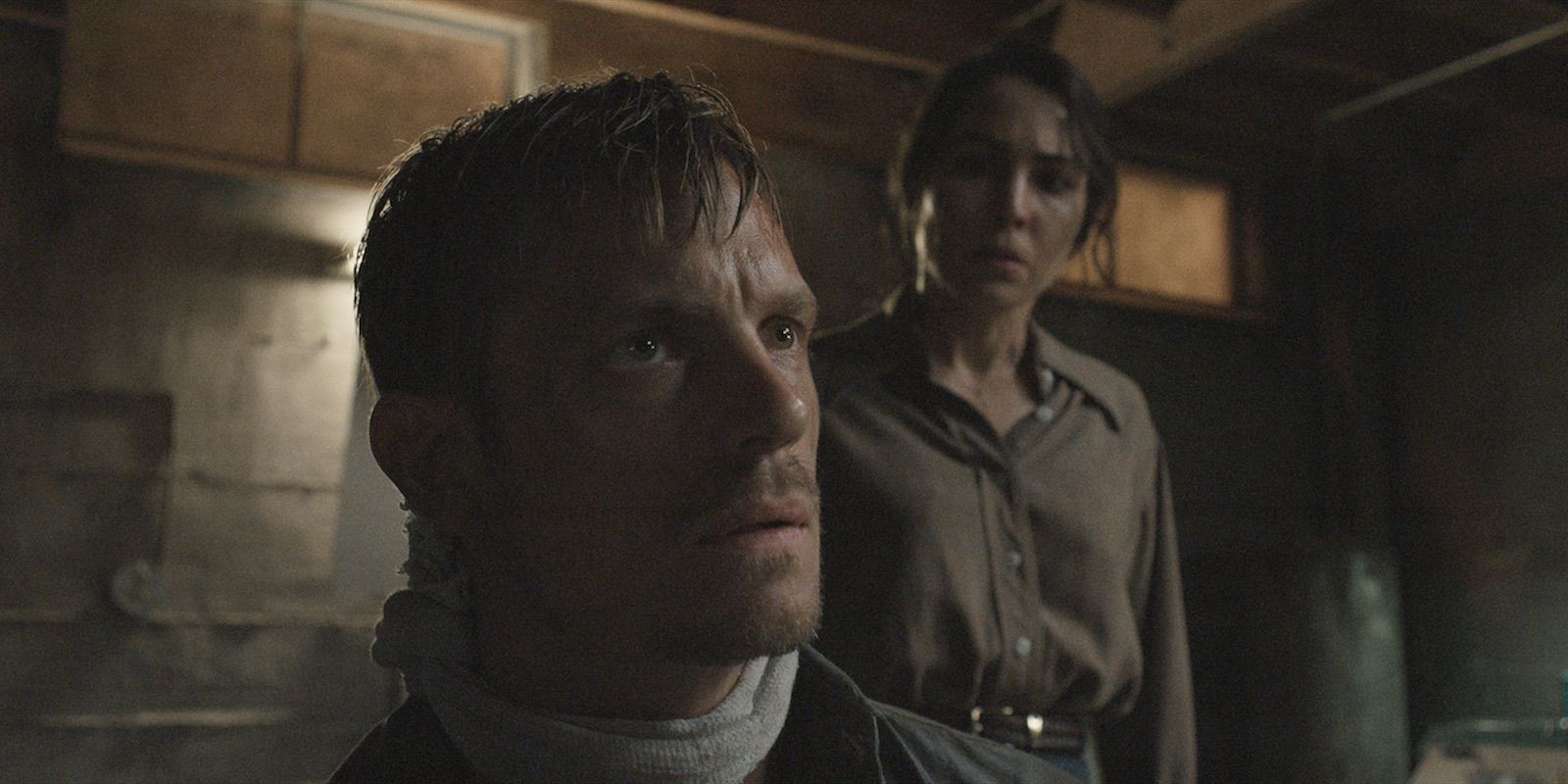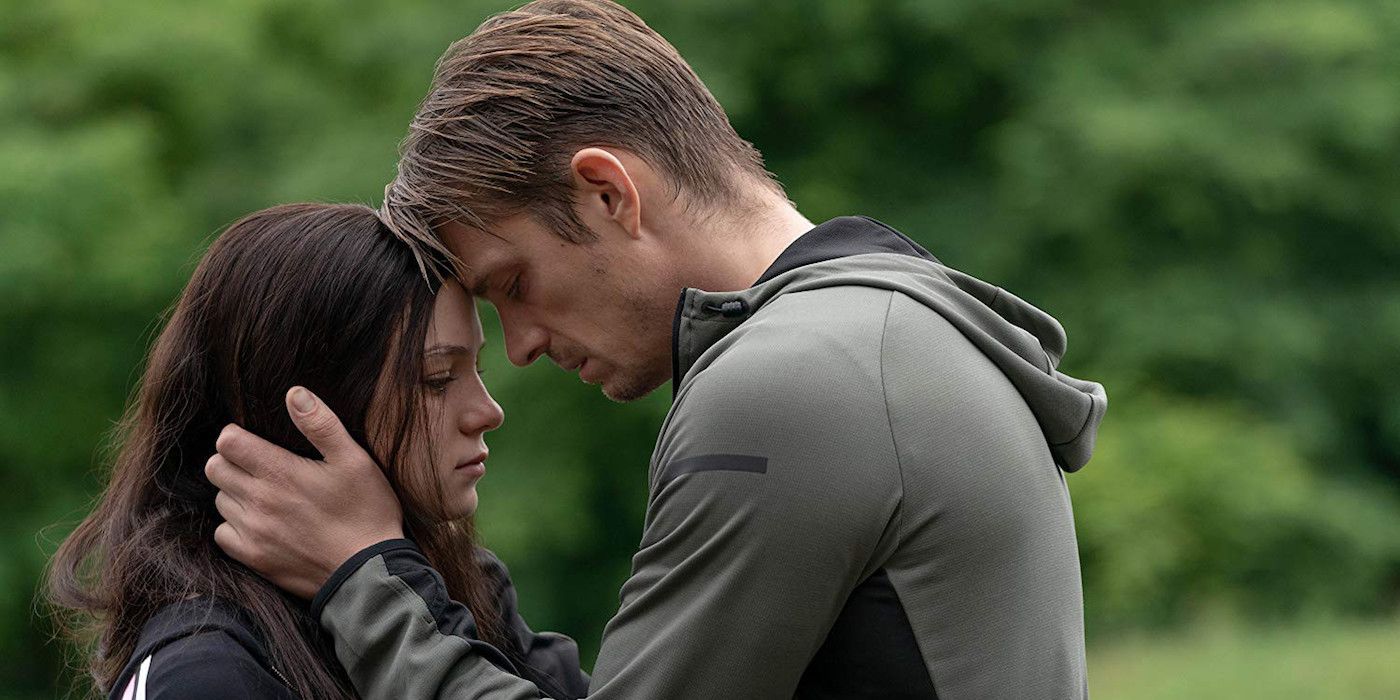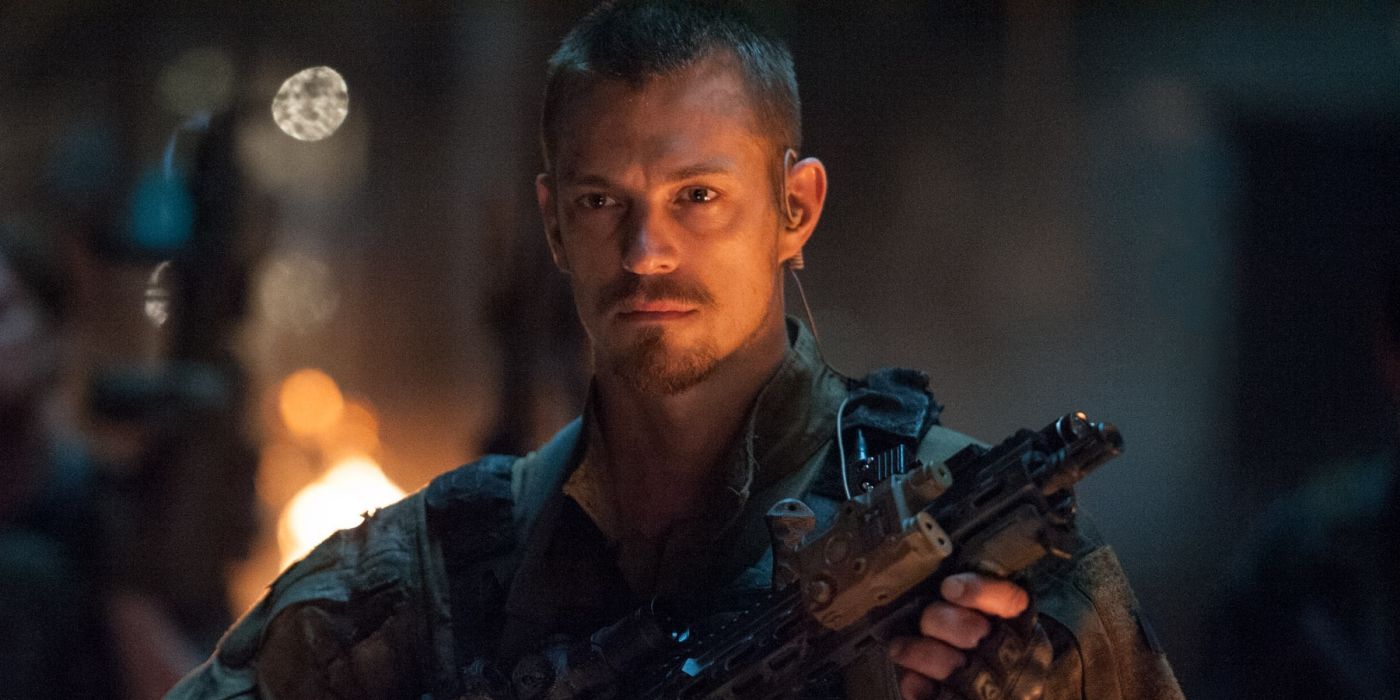In the last few years, Joel Kinnaman has starred in everything from Altered Carbon to Suicide Squad to Hanna to For All Mankind. Transitioning easily between different genres and appearing in both movies and television, Kinnaman has amassed an impressive array of noteworthy roles in a short period of time. Now, in the film The Secrets We Keep he's playing Thomas, an immigrant living in small-town America after World War II who is kidnapped by his neighbor, Maja (Noomi Rapace), a traumatized woman who believes he committed terrible crimes against her during the war. The role is intense both physically and psychologically, and once again shows a side of Kinnaman fans have never seen before.
In an exclusive interview, Kinnaman spoke to CBR about the reasons he took on his challenging role in The Secrets We Keep, why he chooses to play characters that keep him uncomfortable and how rewarding it was to return to his role as Rick Flag for The Suicide Squad.
CBR: What spoke to you about the role and the story of The Secrets We Keep?
Joel Kinnaman: Well, so me and Noomi, we've known each other since we went to the same high school in Sweden in the south side of Stockholm. And we didn’t really become friends until later in our careers. I mean, we knew each other from the theater scene in Stockholm and Gothenburg, and then we became really close friends when we both transitioned into having careers in Hollywood. And our first real collaboration together was in Child 44, and just absolutely loved working with each other. And I think we both felt this sort of connection of having… it's like the origin of your artistry comes from the same place. There's something familiar in the way that we approach work and I think how uncomfortable we’re prepared to let it be.
And we just really, really enjoyed working together, so we've been talking for a while of doing something together. And we were looking for scripts. So we found this script, and we loved the bones of it but it needed some work to it, but we really liked it. And then Noomi charged on with it, and you know she's a very determined person and she found [director] Yuval [Adler]. And I loved Yuval’s movie Bethlehem, I thought it was incredible actually. And he told Noomi that, "You’re great, Joel’s great, 50% of the script is great. The rest is shit, but I'll do it."
And then he did a pretty heavy rewrite on it, completely reshaped it. And then after his reshaping of it, I actually switched roles. I was initially going to play the husband [to Rapace's character], and then we shifted it. And so I played Thomas instead. And I thought it was a really interesting piece. It’s like an absolute chamber piece that felt like a play, and I’ve been longing to go back on stage. And it’s these long, taut scenes between our characters. It felt like it was kind of mouthwatering material and after Yuval’s rewrite of it, it really felt like it was something that is relevant to the conversation today. You know, society’s going through a reckoning about sexual violence and how we deal with people that are surviving sexual assault and abuse. So it felt like something that was very relevant. And the initial version of it was much more, something that dealt with, like a holocaust revenge story that I think we've seen a lot of.
So we were just really excited to dive into it and with such a quality director as Yuval. I mean, he's a true intellectual. I think he’s a professor in philosophy. He’s a very sharp guy that is also very forceful. And he really pushed us. He really pushed us on this one, and it was tough working with him because he would not give us room to breathe. And it was very important to him that everything felt real, that my arms would be tied tight, that even if I tried, I wouldn't be able to get free, that the mouth gag I had was tied tight. So, I mean it was literally I was really bound for real. And it was to the point where I was bleeding from my arm and the corners of my lips were cut. And because I was bound so tight, it takes a long time to tie me like that, we weren't able to always untie me between takes, so I was just sitting on that stool tied for hours. And it was really intense. It was probably the most intense shoot that I've done. I mean, it was.
And I’ve done my fair share of torture scenes. For some reason I've been tortured a lot in films. But this is something very different, and it kind of crept up on me how affected I got. I was pretty surprised actually. I… came to the realization that even though intellectually you know that you're making a film and that this isn’t real, there’s a crew here watching us, but your body doesn't really understand that. So, when you’re put in that position of [being] very vulnerable and you’re being beaten on and spit on and waterboarded and splashed, it really, it adds up.
And I found myself just being filled with rage throughout the whole shoot. I was just angry the whole time. And I usually try to be, you know, a warm contributor [towards a]… warm generous atmosphere on set, but I had no energy for that. I got into a lot of big fights with Yuval during the shoot where we’re screaming at each other, which is very, very unlike me. I was a bit embarrassed by that by the end of the shoot, but at the same time I did feel and realize that it was really benefiting the performance. And the whole shoot all the emotions were like right on the edge. It was right up there. And I never had to search for anything, it was all right there. And I felt very emotionally explosive during the whole shoot.
And then also, you know, shooting with someone like Noomi that I know so well, but also her capacity is so immense. So you know, it felt very real in that room for long periods of time, and it was almost eerie. So it was a real experience. I think both Noomi and I felt towards the end of the shoot that we were kind of losing it a little bit. I was really happy when it was over. I felt really good about it but I was really happy when it was over. It was a huge relief.
Why did you switch roles from the husband to the other character?
I saw the challenge in that and I just felt that that’s the challenge that I wanted. And… I just wanted something that was going to be really emotionally substantial. I wanted something that was really complex…. The husband’s still a great role, and Chris Messina did an incredible job with it. He really is phenomenal…. It was also the scenes between Noomi and me for that. That was the challenge that I wanted.
You've had an incredibly eclectic career. Is there a particular way you choose roles?
Yeah, I try to do things that I feel like I haven't done before, I try to do different things that draw me in for different reasons. I really enjoy doing action and physical stuff. But I also… come from a much more of a theater world. That's how I made my bones. How I started my career was on stage and then with Swedish dramatic films. So I really like to mix it up. I like to do different things that employ different sides of me.
And I felt like I was really longing to do more of an auteur-driven film. I wanted to do a film with a strong director’s vision, and something more just purely character based, not so much concept, but really around the character and the relationship. So I did this film and then also Sound of Philadelphia, that I think is going to change its name to Sons of Philadelphia. And I did those with a few months in between, and I just got a lot out of it. And I thought that's what I needed, as well, to keep evolving.
I think it's a combination of different factors that play into why you choose something. You know, on the one hand, it’s because you want a certain kind of challenge or you want to do something for your career that you haven't done before. I think it's also really important to keep yourself a little bit uncomfortable. I think you need to live 10% outside of your comfort zone to not stagnate. And it's so important as an artist to continue to be on somewhat unstable ground. You need to go to a place, it has to be a little scary, or you're not going to be challenged, and if you do too many things in a row where you're not being challenged then you’re going to start to stagnate. So you need to put yourself in an uncomfortable spot. I think that's also why, I’d had a few lead roles in a row and I think I needed to do something that was a little uncomfortable, maybe I got a little comfortable there.
You starred in the first seasons of Altered Carbon and Hanna, but both continued in their second seasons without you this year. Did you miss being a part of those series?
No, because both projects, it was always intended to be a one-season deal. That was completely in the psychology of doing it. For me, it felt like both of those two projects, it's like doing a novel or doing a long feature film. In the same way as I do a film, I don't expect to do another one.
And then, in Hanna it was a very clear ending, and so was it in Altered Carbon that the concept was always that a new actor would play the character for each season. I was disappointed to see that Altered Carbon got canceled. I was hoping that they would get more seasons, and I think it would've been cool to have seen that concept really come to fruition with seeing several seasons with... other actors [taking] on the role. But it's not something that I think that much about.... I don't try to dwell on any work that I've done in the past. I kind of look forward. I take the lessons that needed to be learned from each job and then you move forward.
On the other hand, you're reprising your role as Rick Flag in The Suicide Squad. Was it rewarding to come back for that?
So that I was very, very happy to come back to because it was such a treat, and such an incredible experience to work with James Gunn. And his vision for The Suicide Squad, it was so good. And when I got the script sent to me, it's so funny. Like every page made me laugh. I was sitting at home reading it laughing out loud.
You know, we had a great time shooting the first one, but this was something really special. And... I've never done a comedy before, and this felt like my first comedy. And I think in the first Suicide Squad, I'm not disappointed with my work in there, but... I never played around with it. I felt like I had these parameters that confined me in a way. So it was a great feeling for me to do the second one because James just opened up the possibilities for the character, and it became much more comedic. And he really taught me how to find the comedy and where the opportunities for that was. And so it was a great learning experience. It was really fun, and both me and James, I think we had a great time working with each other on it. I can't wait for people to see that film. I think it's going to be so good. And everything I've heard, the studio is over the moon about the film. And Warner Bros. basically [has] very few notes, like, almost no notes on the director's cut, which is unheard of on a big movie.
The Secrets We Keep stars Noomi Rapace, Joel Kinnaman, Chris Messina and Amy Seimetz. It premieres in theaters Sept. 16 and will be available On Demand Oct. 16.




